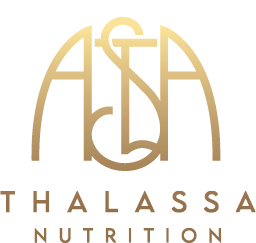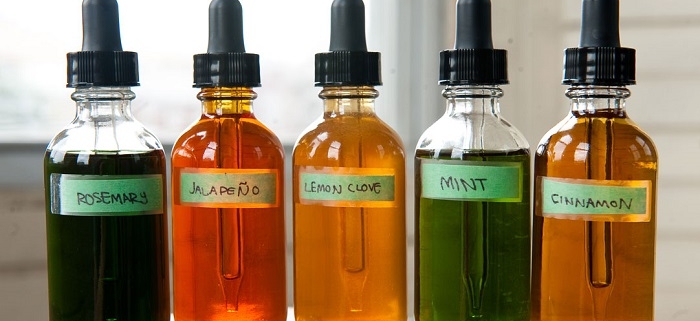Tincture
What is a Tincture?
Tinctures are medicinal substances created by macerating or infusing whole or finely ground (sometimes even powdered) organic matter in pure ethanol (100% grain alcohol), or, where unavailable, any alcoholic beverage without yeast that is at least 80% to 90% proof such as vodka, brandy, cognac, gin, rum, or moonshine. Tinctures are extremely potent, and are generally prepared by trained / professional herbalists according to an accepted ingredient ratio. This figure gives a general indication of the strength of the preparation – and on purchased bottles of herbal tinctures one will see for example “dried toot / menstruum ratio 1:5”.
Tinctures are typically taken by adding the recommended number of drops to a small glass of water (lukewarm / semi-hot is often suggested) and then drinking the mixture.
Tinctures should of course not be used by those who cannot imbibe any alcohol whatsoever – and it is worth noting that in such cases, herbal vinegars may be employed.
What are tinctures used for?
Tinctures are used either as medicine or as antiseptics or liniments. When employed as medicine, tinctures are typically diluted in a large part of plain water, fruit juice, or tea – or they may be incorporated into tisanes and even foodstuffs.
Tinctures may be used sans any dilution when applied topically as a local antiseptic or as (as is the vogue during earlier times) as an aftershave or a cologne. Tinctures may also be used in much the same way as rubbing alcohol or as a liniment to soothe aches and pains.
Tinctures may even used as topical liniments for the skin or scalp, to either treat or cure skin disorders, or to facilitate desired cosmetic pursuits (i. e. hair re-growth, hair or beard thickening, skin whitening, skin exfoliation, etc.) When incorporated into other herbal remedies such as teas or tisanes, tinctures may be used to fortify the medicine, as the extracted essences derived from macerations in alcohol tend to be more potent than is possible through normal means of extraction (i. e. infusion / decoction) alone.
Mixed with food, tinctures add subtle nuances in flavour, or may be used to mask undesirable tastes. When used in cooking (a practice common during bygone days, but has since lapsed into obscurity), it may incorporate desired tastes or medicinal benefits to otherwise normal dishes.
Because of their potent nature, tinctures may cause allergic reactions, especially if the infused or macerated herbs possess possible irritants or allergic compounds. In ancient times, tinctures of certain highly toxic plants were used as poisons – a practice quite common during the latter part of the Renaissance onwards (the Medicis and other powerful families were quite fond of making poisonous tinctures!)
What are tinctures made of?
Tinctures can be made out of a wide assortment of medicinal herbs, spices, and resins. As a rule of thumb, only dried (and if possible, fine powdered) plant matter is incorporated into a tincture recipe as it allows for the faster extraction of its constituents. A tincture’s medicinal intention is only limited by the kind of herbs used in its creation.
Some tinctures may even be made of animal matter (a practice that is quite common in Traditional Chinese Medicine though to all intents and purposes obsolete in the West), whereby animal parts (if not whole animals) are steeped in highly alcoholic beverages and allowed to ‘ferment’ or ‘sit’ (really to macerate) in the liquid for an inordinate amount of time until it is deemed ready for consumption or use. While this may seem disgusting to the Western palate, the alcohol actively helps to preserve the organic matter while extracting whatever traditional medicinal benefits may be derived from the animal matter.
How are tinctures made?
The basic process of making tinctures is simple: When creating macerations, alcoholic beverages that do not contain yeast (which will otherwise facilitate spoilage) are poured over organic matter and sealed. The maceration can be made in either glass or wooden vessels. The maceration is allowed to sit for a period of time and may be agitated periodically.
The quality of the finished tincture is in general determined by:
1) The quality, cleanliness (and drying method if dried) of the organic matter to be used and the type of alcoholic spirit chosen.
2) The fineness of chopping or grinding of the organic matter.
3) The cleanliness of the vessels used for storage.
4) The length of time of the maceration
5) The ratio of ingredients.
6) The conditions of storage i.e. dark glass, quality of the seal of the container, duration of storage. Many tinctures are good for a few years and it is not uncommon to see a shop-bought tincture with a ‘best before’ date some three or four years in the future.
While containers made from plastic or metal may be used, it is not advised as chemical constituents in these materials may leech into the resulting liquor, resulting in an off taste or a bad (read ineffective and possibly dangerous) tincture. Alcoholic beverages that are between 70 – 90% proof alcohol may be substituted for pure ethanol if the latter is unavailable. If you are using 70 – 90 % proof alcohol (your choice of gin, brandy, vodka, cognac, or rum), you may readily create tonics or bitters by allowing either animal parts or whole animals (such as pre-gutted and cleaned snakes) or herbs (whether sweet or bitter) to macerate in the liquor. This maceration process may take some weeks to up to a year. It is then up to you to strain and decant the ensuing tincture, and to top off the remaining organic compounds with fresh liquor (as is commonly done for animal-part tinctures), or to create new ones with freshly ground dried herbs.
Some herbalists may suggest that you first heat the alcohol before pouring it onto the chosen organic matter mix. While this may indeed result in faster extraction of volatile essential compounds, it may also slightly denature the alcohol, thereby reducing its extracting and preservative properties, so such procedures are best left to the books. Always remember that alcohol is flammable and highly potent / toxic even in moderate doses, so exercise extreme caution when taking tinctures orally. When applying tinctures topically as a liniment note that some compounds that may have been extracted from the herbal / animal matter may cause allergic reactions. Once again, exercise moderation and care and always remember to dilute tincture prior to usage, just to err on the side of caution.

 no
no NO
NO no
no
Leave a Reply
Want to join the discussion?Feel free to contribute!